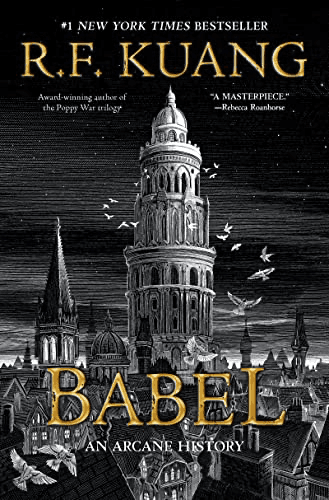Babel: Or the Necessity of Violence: An Arcane History of the Oxford Translators' Revolution

(order)
(November 3, 2022)
A well-crafted alternative history of the British Empire and its industrial revolution, in which steam power only becomes practical after scholars have harnessed the magical powers of silver. Silver in this world has the ability to release the missing elements that separate words in different languages but share common roots: French treácle (antidote): English treacle (sweet), for example, is medicinal. Four young Oxford undergraduates arrive from the corners of Empire: Calcutta, Canton, Port-au-Prince, and the daughter of an admiral. Two are women. Two are black; the boy from Canton can sometimes pass. They are to be trained to supply the magic power that powers the empire.
The catch here is that the students know too many post-colonial ideas, and too little history. They’re entirely convincing until they speak about the political and economic ideas at the heart of the story. When they do, they suddenly sound like contemporary undergraduates at top schools who have learned to problematize and interrogate from a tender age. Kuang is absolutely convincing on 19th-century Oxford slang, and if anything minimizes its racism. But we’re a half-century before Shaw’s first plays — and Shaw saw himself as a radical. At the time of the novel, Frederick Douglass was only at the start of his career. The students are intended to be brilliant, but they seem to know W. E. B. Du Bois decades before his birth.